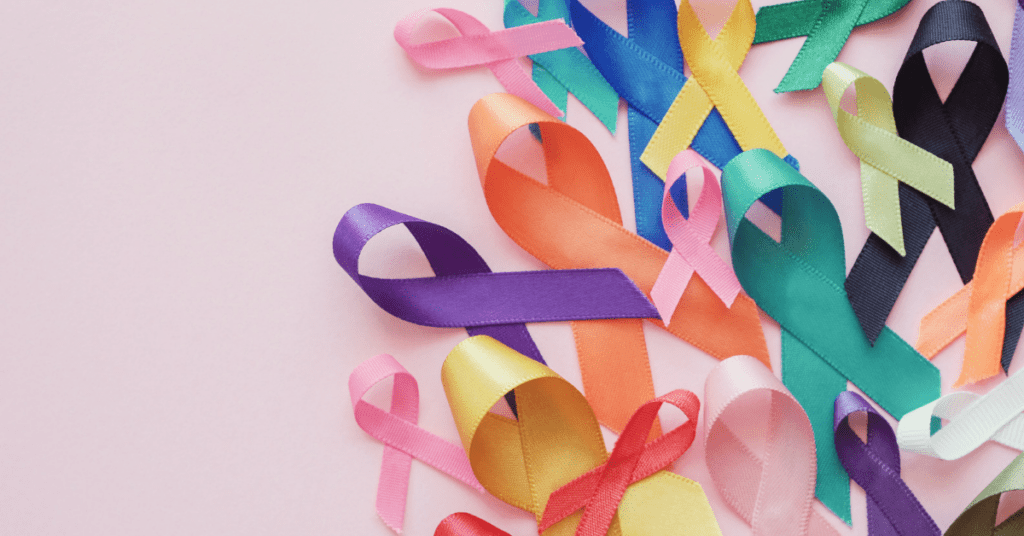“It’s cancer.”
Last year, more than 19.3 million people globally heard some variation of these words as they faced the reality of a cancer diagnosis. Though cancer has become increasingly common, it’s still a blow that’s impossible to predict or prepare for. So when a cancer diagnosis does impact your life, coming to terms with it can understandably take some time.
Hearing you have cancer is frightening, and more often than not, leaves you with more questions than answers. How will you tell your family or friends? How will this change your lifestyle? And now that you know, what should you do next?
At Aynjil, we’re here to help ease your uncertainties and provide the support you need. Following a new cancer diagnosis, here are a few first steps to help you move forward with your treatment in a positive way.
Inform Loved Ones
Telling your partner, spouse, parents, children, and friends about your diagnosis is probably not something you are looking forward to. You don’t have to tell anyone until you are ready. Even though they have the best intentions, the concern of loved ones can be overwhelming, not to mention the influx of information from their enthusiastic research efforts.
It’s true that having family and friends by your side during this time is crucial to survival, according to several studies. But know your limits and give yourself permission to take a rest or protect your space when you need to.
That said, there are several roles that your loved ones can play during this time. You need at least one trusted person that can be with you for doctor’s appointments to help you listen, ask questions, offer comfort, and support you in your decisions.
A larger circle of friends and family can assist you in other ways. Be specific about what kind of support you need, whether it’s childcare, food, housekeeping, or running errands. Keep in mind, just because someone offers their help, you don’t have to feel obligated to accept it.
Now that you’ve told people, you can expect them to check in on how you are doing and how the treatment is going. To avoid long, repetitive, and potentially exhausting phone calls, consider sending a group text or email update regularly. You can also use the voice-to-text capability to save time and energy.
If you find yourself barraged with replies and want to avoid the responses from a group text, there are also websites specifically designed for cancer patients to keep everyone updated without tying up your phone. Typically, these sites let you make your updates public or private, available to only those you invite.
Educate Yourself About Your Cancer Diagnosis
You are your best advocate, and by being well informed, you will feel more comfortable talking with your family, friends, and healthcare team. Learning more about your diagnosis and treatment can also help you regain a feeling of control.
First, know that it is absolutely okay to ask your doctors any questions that you have. They don’t expect you to have a professional understanding of medical terms or the details of your different treatment options. Moreover, it is your right to consider all of the information presented to you, ask for clarification, and make the best treatment decision for your situation.
Of course, this can be a lot to take in. Cancer appointments can be a whirlwind of information, especially in the wake of a new diagnosis. Here are some suggestions to help you feel focused before, during, and after an important medical conversation.
- Any time you think of questions between appointments, write them down. You can research some of them on your own and ask clarifying follow-up questions next time you see your doctor.
- Even if you’re keeping a detailed list, new questions are bound to come up after you leave an appointment. Ask your doctor if there is someone you can direct follow-up questions to and determine the best way to contact them between visits.
- Bring a family member or friend with you to help take notes and ask questions. They may think of something that hasn’t even crossed your mind and can help remember information covered in the appointment.
- Write down everything, and then once your doctor is done, read your notes back to them out loud. This will help you understand what they just said and to catch any information you may have missed or misunderstood.
Build Your Team and Establish Your Treatment Plan
Beating cancer can feel like a daunting task, and wherever possible, you’ll want to stack the odds in your favor. This starts by having the right team in your corner. If at all possible, look for an oncologist who specializes in your specific cancer. They’ll have valuable experience and insight to help enact your treatment plan.
Typically, when cancer is first diagnosed, a certain treatment regimen — also referred to as a standard of care — is considered the best and most widely accepted approach to fighting the disease. You can find out the standard of care for your particular cancer by looking at the National Comprehensive Cancer Network guidelines.
But you don’t always have to follow the default standard of care if it doesn’t make sense for your particular case. Though these standards can be valuable resources, it is still crucial to work with your healthcare team to understand all your treatment options, including side effects and medications for each one. As you contemplate your different paths, consider the following:
- When presented with multiple treatment options, ask why one might be recommended over another. Find out the purpose of each treatment and if that aligns with your personal condition and goals.
- Get a second opinion. Even if you trust your doctor, the extra confirmation that you are moving forward in the right direction can bring you peace of mind.
- Ask about clinical trials. Depending on the type of cancer you have and your stage, this might be the best option. Clinical trials can be especially valuable for patients with rare cancers that do not have an established standard of care, or those with advanced and aggressive cancers who have already exhausted other treatment options.
- Talk with your healthcare team about special events you might have scheduled during your treatment and how the timeline and side effects might affect them. It may be necessary to reschedule or choose a treatment plan with some flexibility. When making this consideration, though, it is important to weigh the significance of the event against your doctor’s treatment recommendation.
Notify Your Workplace and Co-Workers
Again, it’s up to you to decide who you want to tell about your diagnosis and how much information to share with an employer. But generally, you will need to talk to a supervisor and someone in Human Resources. Keeping your diagnosis secret at work won’t necessarily help and may actually hinder your recovery process.
Depending on your local laws, some employers may be required to let you work a flexible schedule to meet and maintain your treatment needs. In most places, as long as you can fulfill your job duties, you can’t legally be fired or demoted for being sick.
There is no rulebook on how to tell your co-workers — if you decide to tell them at all. It might be easiest to talk to the co-worker you are closest to and get their opinion. You can inform other people in a group at lunch, during a meeting, or by email. It honestly depends on your preferences, relationships, and workplace culture.
Some of your co-workers may be wholly understanding and ready to help. In contrast, others may ask you intrusive questions or feel uncomfortable around you, possibly even feeling resentful at having to take on extra duties on days you may need to take off. Keep in mind that these feelings are likely not personal. You can only control yourself and decide what works best for you and your situation.
Aynjil Insurance
At Aynjil, our own experience with cancer proved that medical insurance by itself is not sufficient for South Africans diagnosed with cancer. This disease is all-encompassing, affecting your physical and emotional stability, lifestyle, family, and friends.
That’s why we designed our cancer insurance to work in conjunction with your existing medical insurance policy. Our cancer insurance product aims to assist our clients before their first diagnosis and beyond their last round of treatment. We have carefully curated added benefits to complement our cover’s primary medical use, such as transportation to and from appointments, qualified au-pairs to help with your children, and mental health counseling, to name a few.
We’ve also made signing up and making claims easy, ensuring you receive a response within minutes. We constantly enhance and improve our product by introducing new medical evolutions, products, and services. Since Aynjil’s only focus is cancer, we can develop our insurance to meet the real needs of cancer patients.Get in on our pre-launch offer now. Register your interest in one of our insurance policies, and get three months’ premium back at the end of your first year. Visit our website to learn how we can help you and your loved ones today.
Marketing by Joseph Studios



